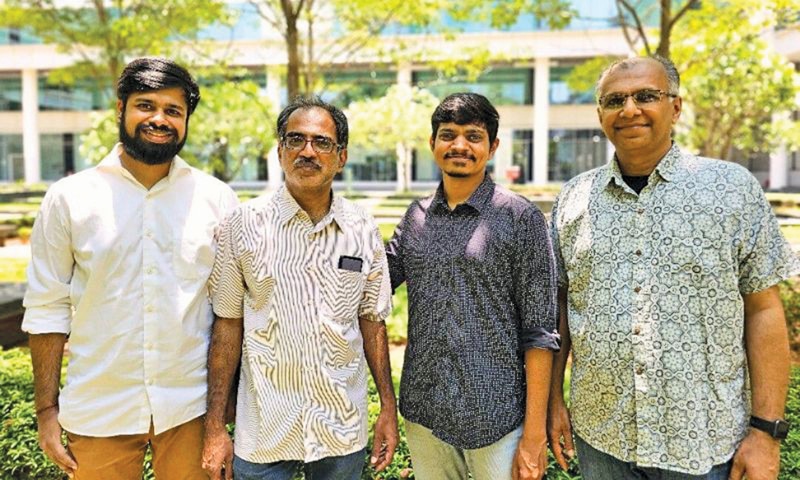Chennai-based startup InCore Semiconductor aims to lead the transition to indigenously designed chips through RISC-V architecture.
Identifying itself as a spec-to-silicon company, the fabless startup InCore Semiconductors was founded by GS Madhusudan (CEO), Neel Gala (CTO), Gautam Doshi (Chief Architect), and Arjun Menon (Chief Engineer) in 2018. Specialising in processor IP design in the RISC-V architecture, InCore originated from the Shakti project at IIT Madras.
The startup offers customisable processor IP core solutions supporting various technology nodes with tailored solutions for segments such as low-end and high-end IoT, security, automotive, and storage applications. “We partner with companies to provide comprehensive chip design services. We contribute our IP and high-level architecture while our partners handle the rest of the process,” says Madhu.

InCore offers two RISC-V processor IP cores—a two-stage embedded core Azurite for low-power applications and Calcite for higher performance. “Azurite is designed to supplant ARM processors like M0 to M4 in specific ultra-low power consumption applications, including industrial controllers, smart cards, energy meters, and select automotive systems (excluding ADAS). Calcite boasts greater Linux capability and is well-suited for applications demanding higher performance, such as handheld devices, factory automation, networking on-chip, and storage controllers, achieving speeds of up to 800 megahertz,” explains CTO Neel Gala. The cores are being deployed on customer silicon starting early 2024.
The startup uses Bluespec SystemVerilog for hardware development to facilitate parameterisation and scalability in design code. Gala says that Bluespec’s abstraction enhanced productivity by at least 10x compared to conventional techniques.
The startup’s approach allows for the generation of multiple variants from a single code line, aligning with the fundamental RISC-V principles of flexibility and customisability. The company provides a business model adaptable to clients’ requirements through discussions about industry domains, performance requirements, and considerations for real-time systems to understand the unique workloads and roadmaps.
Gala says, “Alongside developing our processor IP portfolio, we are also expanding our operations to become a one-stop shop for the custom silicon needs of our customers. If they choose to leverage our IPs, we will assist them in assembling all the necessary components, crafting a unique solution, and connecting them with partners who can guide you through the manufacturing process and oversee the rest of the supply chain.”
The startup uses standardised interfaces (AHB, APB, AXI) for seamless integration with other IP blocks on a standard SoC. It also offers an interconnect subsystem as part of its IP portfolio, empowering customers to build systems with flexibility and hierarchy. “When you acquire the core from us, you also get the interconnect IP, allowing you to build any system with your chosen hierarchy and bus matrix. You can easily integrate third-party IP for USB, DDR, Ethernet, and more,” explains Gala.
InCore’s licensing involves negotiable initial non-recurring engineering (NRE) fixed fees and royalties, with flexibility based on factors such as promised volumes or specific customisation needs. The startup believes that its flexibility in tailoring licensing models to suit the dynamic business needs of its partners sets it apart from traditional processor vendors. “The aim is to deliver a customised solution that not only meets but exceeds the client’s initial expectations,” says Madhu.
The startup became India’s second chip design startup to receive funding from PeakXV Partners (formerly Sequoia Capital India) worth $3 million, which it will use to enhance its portfolio of Core-Hub generators and reference SoC platforms aimed at multiple segments in the embedded chips space. It is currently looking to partner with a domestic embedded application solutions provider to complement its solutions. “This could include applications like the TCP/IP stack or safety features for automotive solutions, such as low-cost anti-lock braking system (ABS) for motorbikes,” says Madhu.
The startup is working to include a third core, comparable with ARM’s Cortex-A55, with speeds reaching up to two gigahertz. It is also working to enhance its capabilities in vectors, security, and performance monitoring tools.






